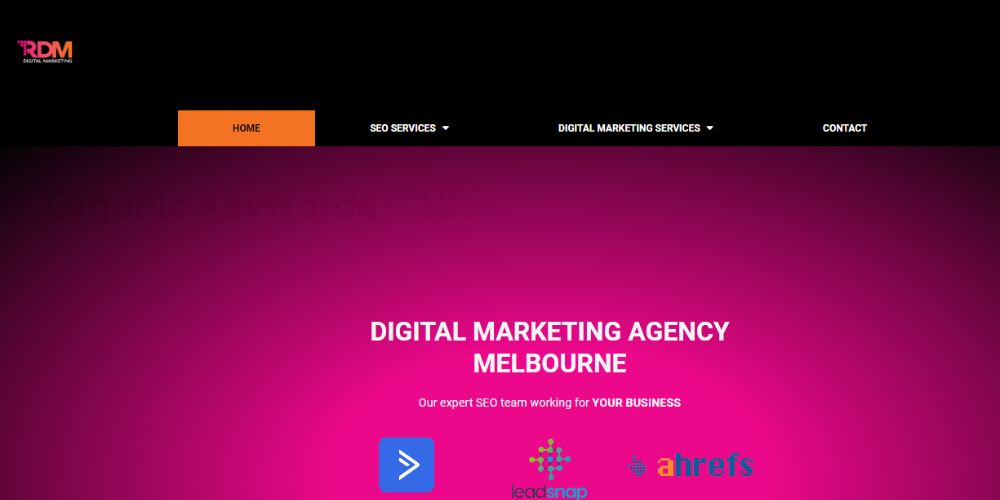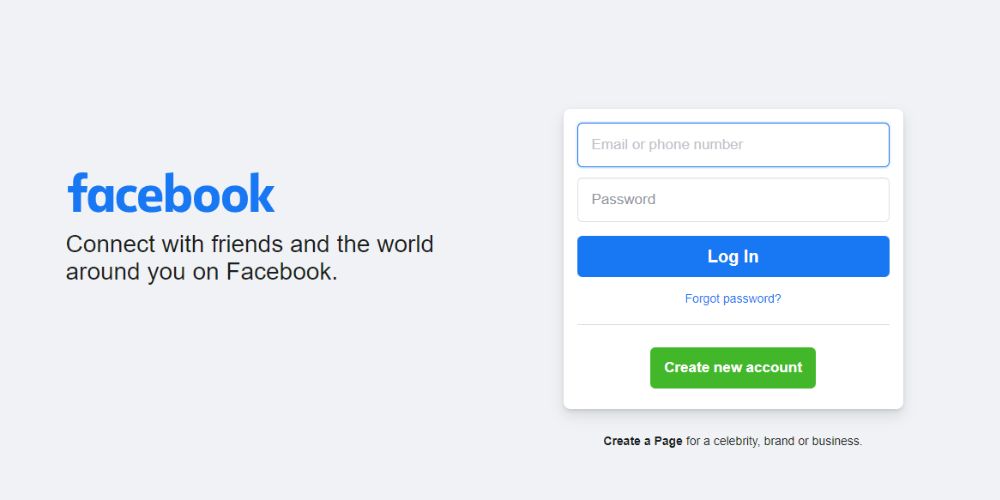Table of Contents
In today’s digitally driven world, when we tweet, swipe, and touch our way through the day, having a captivating online presence may make or break your career. Whether you’re a little neighborhood bakery or a large organization, the question is the same: do you need a website?
A website is now a requirement, regardless of whether you’re a startup firm, a freelancer, or an established corporation. The digital entry point links you to a sizable online audience. It gives you an edge in today’s competitive business environment.
In this blog, we’ll go into more detail about the importance of websites, examine their main features and advantages, and offer advice on how to build an effective online presence. Join us as we unlock the potential of websites and reveal the countless opportunities they present for defining your professional or commercial identity in the digital age.

When Do You Need a Website?
A website may be useful in various scenarios, both personal and business. Here are some frequent circumstances in which having a website is beneficial:
Business
A website is essential if you operate a business, regardless of size. It acts as an online presence where prospective consumers may discover your products or services, contact you, make purchases, or learn more about your brand. A website may help you gain a reputation and reach a larger audience.
E-commerce
A website is required if you offer items or services online. It enables you to advertise your items, provide full descriptions, display pricing, and accept online payments. An e-commerce website allows users to purchase from anywhere, increasing sales and growth.
Professional Assistance
Offer professional services such as consulting, coaching, or freelancing. A website may be used to exhibit your skills, share your portfolio or work samples, and allow potential clients to contact you with enquiries or bookings. It adds to the development of trust and credibility in your industry.
Nonprofit Organizations
A website may help nonprofit organizations promote awareness about their cause, discuss their goal and effect, and give a platform for donations or volunteer opportunities. A website allows them to communicate with supporters and broaden their reach.
Blogging and Content Creation
Suppose you enjoy writing, sharing information, or generating material in any form (for example, films, podcasts, or photos). In that case, a website may be a central centre for showcasing your work. It enables you to cultivate a loyal following, interact with readers or viewers, and monetize your material through advertisements or sponsorships.
Personal Branding
A website may be useful for personal branding, especially for creative professionals, entrepreneurs, and job seekers. It is an online résumé or portfolio showcasing your abilities, accomplishments, and work samples. It allows you to stand out and create an impact in your field.
When You Don't Need a Website?
While having a website can be useful in many cases, it is only sometimes essential or provides major benefits.
Here are a few reasons why you might not need a website:
Online Presence is Limited
You might only need a website if your target audience or customer base is actively involved online or if your business predominantly runs through offline channels, such as a brick-and-mortar store with a local clientele. Investing in other marketing methods or channels may be more beneficial in such circumstances.
Projects or Temporary Events
A dedicated website may not be essential if you organize a short-term event, such as a one-time conference or a local fundraiser. In these circumstances, using social media platforms or event-specific channels to advertise and give information may suffice.
Alternative Online Services
Depending on your objectives, you may discover that online platforms meet your requirements without needing a specialized website. For example, if you’re an artist, you might use Etsy or Instagram to promote and sell your work, or if you’re a content provider, you could use YouTube or podcast hosting services instead of a website.
Budget or Resources are Limited
Building and maintaining a website requires time, money, and technical knowledge. Suppose you have limited resources or a restricted budget. Therefore, it may be more practical to concentrate your efforts on alternative marketing channels that deliver a higher return on investment.
Privacy Concerns
Suppose you wish to keep a modest online footprint or are concerned about privacy and security. In that case, you may need something other than owning a website. In such instances, it is critical to carefully analyze the information you provide online and seek alternate methods of achieving your objectives.

Do You Need a Website When You Have a Facebook Page?
Businesses frequently rely on Facebook or other social media platforms as their primary advertising outlet. And these networks provide benefits.
For example, they may assist you in establishing a larger audience and even do market research. However, a Facebook profile should be used outside your company’s website.
Here are some of the reasons why.
You Do Not Have Control Over your Facebook Page
What if Facebook decides one day that it will no longer support businesses? If your Facebook page were your only online presence, all your clients and followers would certainly go.
You have complete control and ownership over your website’s content, design, and operation. On the other hand, a Facebook page works inside the platform’s constraints. It is subject to its regulations and updates. Having a website gives you control over your internet presence. It allows you to personalize it to your unique demands and branding.
Personalization and Branding
A website’s design and layout may be customized to match your brand’s identity. You may provide your visitors with a one-of-a-kind and personalized experience by combining your branding components, colours, and messaging. While certain features of a Facebook page can be customized, it still runs within the platform’s structure. It may provide a different amount of freedom than a website.
You Can Hardly Optimize a Facebook Page
Consider this. Do you use Facebook or Google to find a local business? The fact that Google receives 8.5 billion daily requests demonstrates that most people prefer search engines over social networks for information. By establishing a company website, you can develop a presence that will help people find you when they do searches for the items or services you provide. Even if you cannot compete with the scale of larger websites, you may design your site to appeal to local queries and attract a local audience.
Content Organization
A website provides a structured platform for organizing and presenting your material logically. You may build many pages, categorize material, and make it simple for visitors to navigate. This is especially beneficial if you have a lot of material or want to highlight different elements of your company or organization. Although Facebook pages allow for some information organization, they are primarily intended for social interactions. They may provide a different level of content organization than a website.
Visibility in the Search Engines
Websites may be search engine optimized (SEO), allowing our company to appear in search results when consumers search for relevant keywords or phrases. This increases your exposure and reaches by driving organic visitors to your website. While Facebook pages can appear in search engine results, having a separate website gives you greater control over SEO methods and provides a larger platform for search engine visibility.
A Website is More Credible
Customers are more inclined to purchase from companies they know and trust. A corporate website allows a firm to develop its brand identity and communicate its ideals to potential consumers. It enables firms to professionally present their products and services professionally, increasing their legitimacy and dependability.
While social networking networks such as Facebook can help you reach a larger audience, they give a different degree of credibility and dependability than a corporate website. A website is a specialized platform focusing completely on the company and its products. It gives clients a complete understanding of the business, which aids in developing trust and confidence in the organization.
Safer Transactions
Executing transactions securely is one of the most significant benefits of having an e-commerce website. When making online transactions, customers must have confidence that their personal and financial information is in good hands. Secure payment gateways are provided by e-commerce websites, making it impossible for hackers to access and exploit client data. Customers are cautious about purchasing since this protection is not always accessible on social media.
Another important characteristic of e-commerce websites is the ability to customize the purchasing experience. Businesses may customize their online stores to reflect their brand identity, providing consumers with a unique buying experience. They can also provide personalized suggestions and specials based on user behaviour, improving the chances of repeat purchases.
Frequently Asked Questions
While having technical abilities is advantageous, it is not required to operate a website. CMSs, such as WordPress, provide user-friendly interfaces that
allow you to edit and maintain your website without technical skills. However, technical skills or support may be necessary for more complex modifications or issues.
By implementing e-commerce capability, you may sell items or services straight from your website. Setting up an online store, connecting secure payment channels, and maintaining inventory are all part of this. WooCommerce, Shopify, and Magento are e-commerce systems that offer full solutions for selling things online.
An excellent website design should serve its intended purpose by engaging the visitor and communicating its specific message. Several elements influence website design, including consistency, colours, font, images, simplicity, and usefulness.
Yes, you may monetize your website in a variety of ways. Through ad networks, you may show adverts, participate in affiliate marketing campaigns, sell physical or digital goods, give services and consultations, or provide premium content or membership subscriptions. The techniques of monetization you select will depend on your specialty, target market, and business objectives.
Conclusion
A website is very advantageous for companies and organizations. It creates an internet presence, builds a reputation, supports branding initiatives, and allows consumer interaction and assistance. A website increases market reach, enables online sales, and offers insightful analytics that yields useful data. Although social media sites like Facebook can improve social interactions on a website, they cannot take the role of a specific website.
A website provides more ownership, control, personalization, and material organization. It is an effective instrument for web marketing, client acquisition, and company expansion. Businesses may successfully engage with their target audience, boost conversions, and maintain competitiveness in the digital market by investing in a well-designed and functional website.

